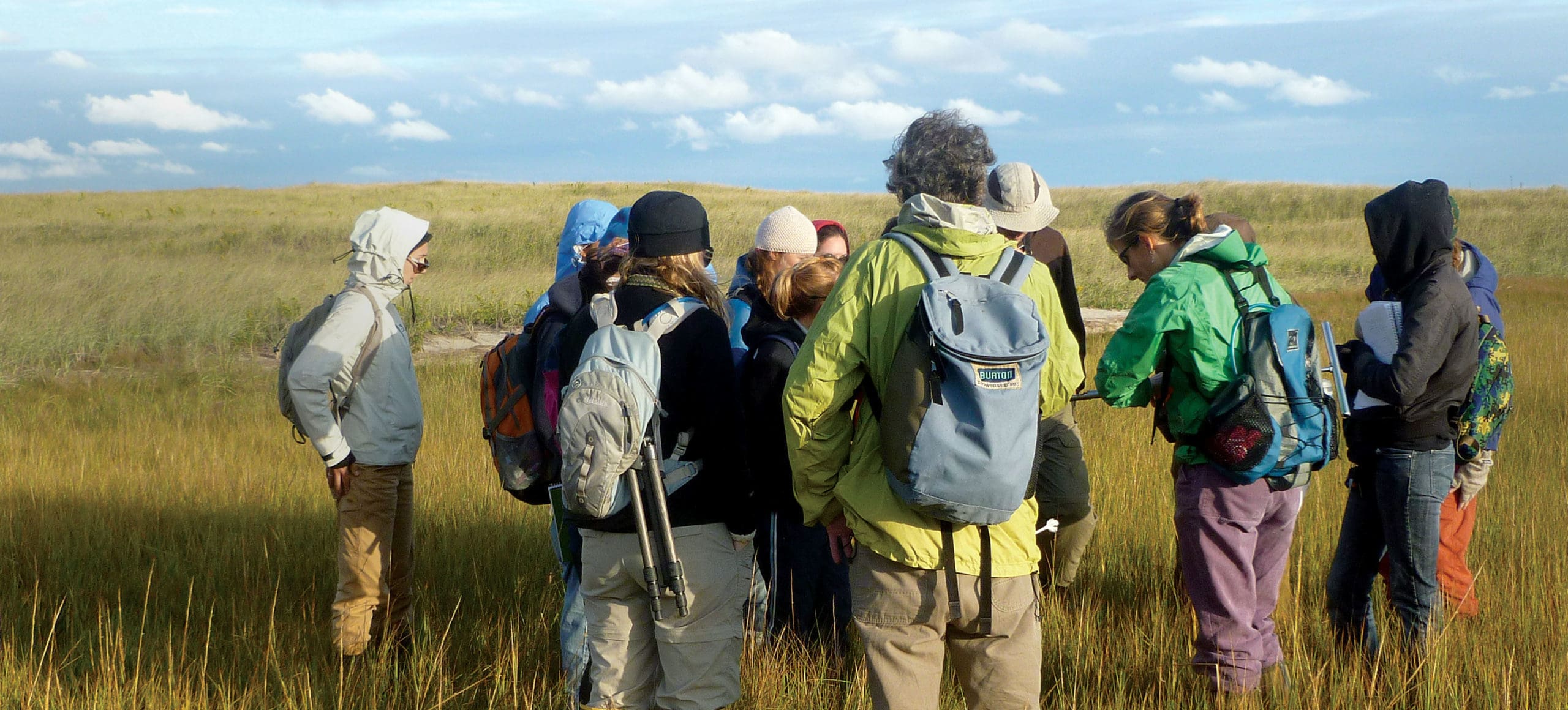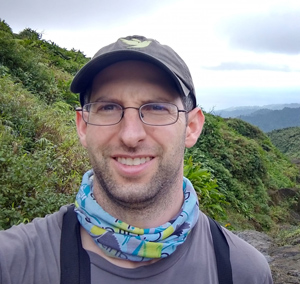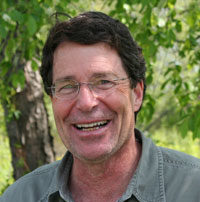Certificate
Certificate in Environmental Education and Sustainability
Meet current and future ecological needs.
Educating the next generation of environmental leaders is essential to long term sustainability efforts. This certificate will give you a solid foundation in educational techniques that can be used to inform others about the many actions that are currently being taken to save our natural environments and combat climate change. Communicating the fragility of our ecosystem is the first step in building a healthier, more sustainable future.
Antioch’s New England campus offers this degree, available online and in person.


"I have always been drawn to nature in a way that was beyond recreation....the connection was always spiritual. By the time I was in high school, I was ready to devote myself to her protection as a career," she says. "[We need] to center the voices, needs, and experiences of Black, Indigenous, and other People of Color in the environmental movement....I’d like to permanently flip the paradigm of what it means to do environmental work in this country."
Nia Keith ’09
Vice President for Diversity, Equity, Inclusion, and Justice (DEIJ), Mass Audubon
Try Us Out
Wondering if Antioch ES MS is right for you? Prospective students can earn up to three credits in a semester at a highly reduced rate. These credits are transferable into the ESMS degree.
Program Overview
This graduate credit certificate is a partnership between Antioch University New England and Wolf Ridge Environmental Learning Center. Coursework involves 12 credits in community ecology, environmental education, and field techniques, along with an internship to apply these skills in a professional setting. All courses are delivered at the Wolf Ridge Environmental Learning Center in northern Minnesota. LEARN MORE
Degree Requirements
Requirements
This 12-credit certificate can be applied as credits towards the Master of Science degree in Environmental Studies at Antioch University New England. Required Courses (at Wolf Ridge Environmental Learning Center):
- Community Ecology: Natural History of Lake Superior
- Foundations of Environmental Education & Sustainability
- EE Methods: Nature Teaching and Learning
- Internship & Seminar
Centers and Resources
Additional Information
Yes, you can complete this certificate entirely online. These courses are synchronous and, in some cases, asynchronous. Virtual synchronous course class sessions are offered one evening during the week (Monday-Thursday evenings, ET) and on weekends. You can also choose to take courses with us in person, including field-based courses and campus-based intensives.
This certificate can be completed in two semesters (10 months).
Graduates of our programs are employed in many sectors of environmental work, from private consulting and regulatory enforcement to conservation institutions, formal and informal educational settings, government agencies, advocacy organizations, and the arts.
Faculty Spotlights

Michael Akresh, PhD
Core Faculty, Director

Michael Simpson, MS, MALS
Faculty Emeritus

Abigail Abrash Walton, PhD
Teaching Faculty

Gopal Krishnamurthy, PhD
Chair
Admissions / Cost
Deadlines
| Program | Term | Deadline |
|---|---|---|
| Environmental Studies Certificates | Summer | April 15 |
| Fall | July 15 | |
| Spring | December 1 |
How to Apply
- Complete the online admissions application, including the following:
- Resume/curriculum vitae (CV)
- Official transcripts from all colleges or universities where you earned a degree or certificate.
- email transcripts to [email protected], or
- mail to:
Office of Admissions
Antioch University New England
40 Avon Street
Keene NH 04341-3516
- Non-refundable $50 application fee
- There are additional requirements for International applicants and applicants without a Bachelor's degree
- Master’s and Certificate Programs do not require the GRE or any other standardized test for admissions. We consider all of your application materials and evaluate your academic potential in a variety of ways.
Official transcripts should be emailed to [email protected] or mailed to:
Office of Admissions
Antioch University New England
40 Avon Street
Keene, New Hampshire 03431-3516
All application materials submitted become part of an applicant’s file and cannot be returned.
LEARN MORE
Questions about the Admissions process? Contact Sarah Wilson in Admissions at [email protected].
Tuition & Financial Aid
A college education is an investment in your future. Let us help you understand the costs and explore the resources available to help make your college education even more affordable. The majority of AUNE students finance their education through some form of financial aid. You may not be sure which federal, state, public and private aid packages – such as loans, scholarships, and grants—are right for you. Our staff is here to help you, so you can focus on what’s most important: beginning your academic program at AUNE.
Cost
| Department/Program Name | Tuition Cost per Credit | Total Program Credits |
|---|---|---|
| Certificates: *with careful course selection all certificates are possible within the Environmental Studies MS degree requirements |
||
| Applied Spatial Analysis for GIS | $840 | 9 |
| Climate Change Education | $840 | 9 |
| Climate Resilience | $840 | 9 |
| Conservation Psychology | $840 | 9 |
| Environmental and Sustainability Education | $840 | 12 |
| Food Justice and Resilient Communities | $840 | 9 |
| Socially Responsible Organizational Leadership | $840 | 9 |
| Environmental Studies, Certificate | $840 | 9 |
| View the Cost of Attendance Components | ||

Start your Antioch Journey
Take your next step - talk to our admissions team to find the right program for you.
